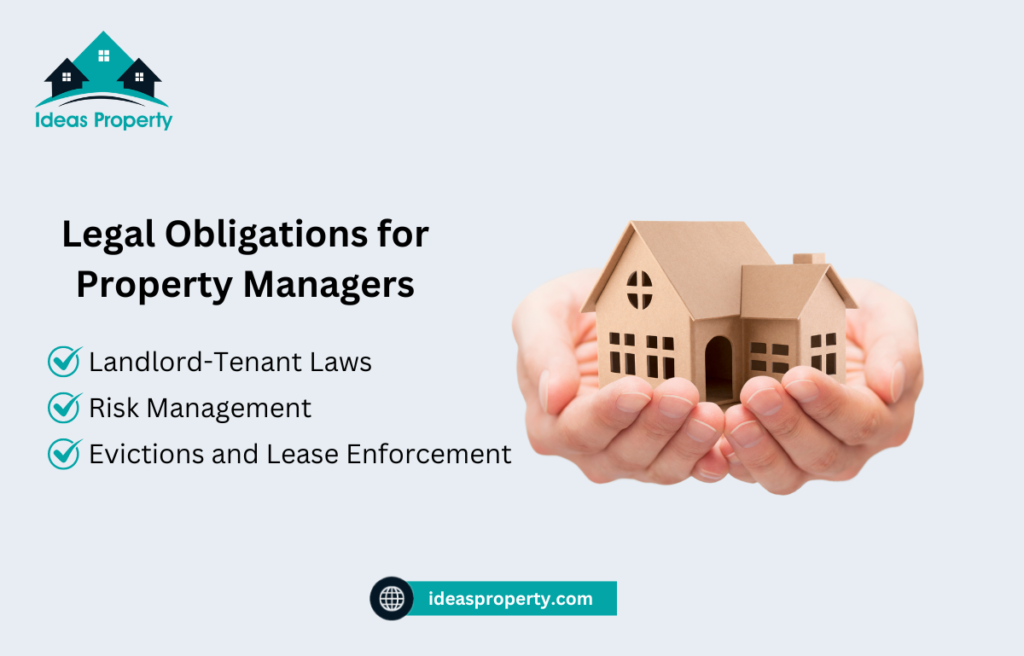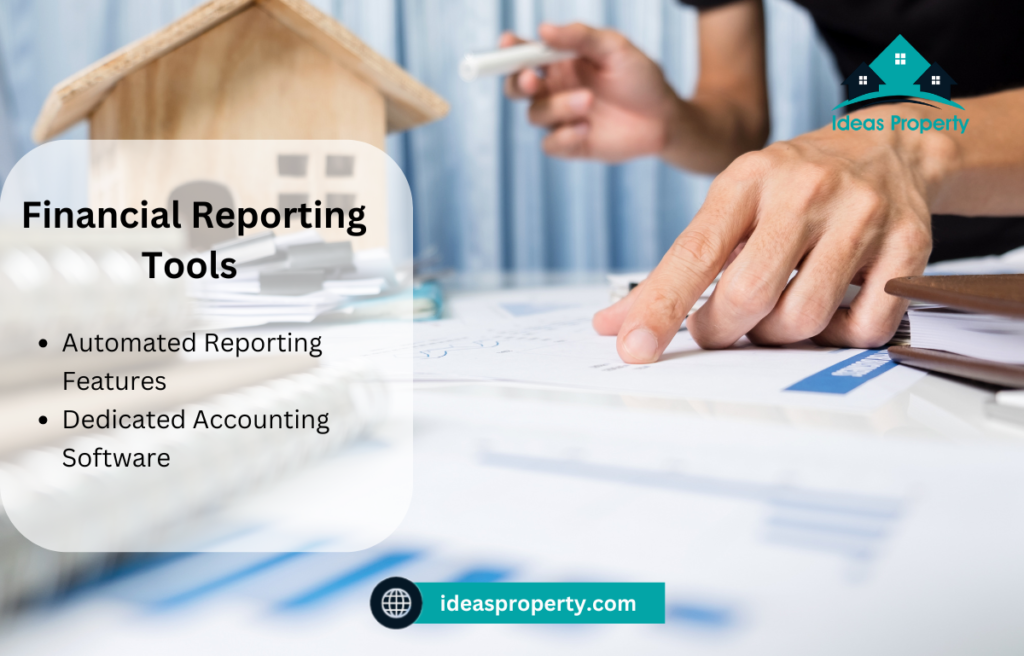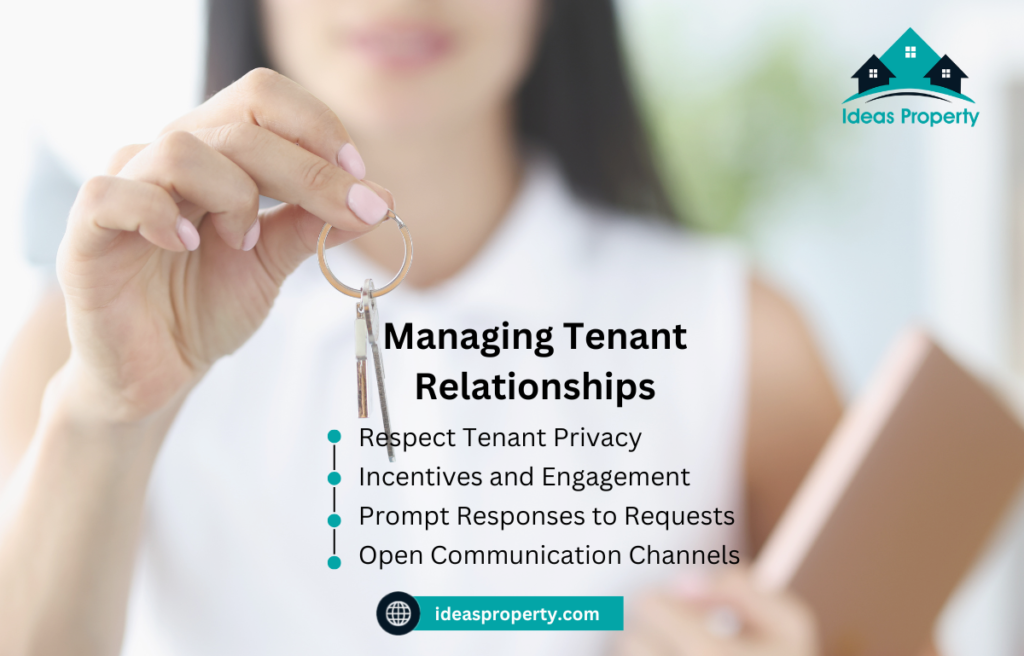Smart Property Management: Tenant Screening, Retention & 1031 Tips

Managing properties effectively is no small task, and whether you’re a seasoned property manager or just starting out, there are always new strategies and tools that can help streamline your operations. From maintaining positive tenant relationships to ensuring the property’s upkeep, the role of a property manager requires attention to detail, organization, and a proactive mindset. In this guide, we’ll share essential property management tips to help you stay on top of your responsibilities, improve tenant retention, and maximize the value of the properties you manage. With the right tools and techniques, property managers can avoid common pitfalls, reduce vacancies, and ensure long-term success in their operations.
What Are the Most Important Responsibilities of a Property Manager?
Property managers hold a wide range of responsibilities, ensuring that both the needs of property owners and tenants are met efficiently. The primary goal is to safeguard and optimize the property owner’s investment while maintaining tenant satisfaction and legal compliance.
- Tenant Management: One of the core duties of a property manager is managing tenant relationships. This includes advertising vacancies, screening potential tenants, and handling tenant complaints. It’s essential to find responsible tenants, manage rent collection, and ensure that any tenant issues are addressed promptly to maintain tenant satisfaction and retention.
- Property Maintenance and Repairs: Regular maintenance is crucial for keeping a property in good condition and ensuring long-term profitability. Property managers are responsible for scheduling routine upkeep such as landscaping, pest control, and necessary repairs. They often have established relationships with contractors, making it easier to handle repair requests efficiently. Preventative maintenance also helps reduce long-term costs and avoids tenant dissatisfaction.
- Financial Management: Property managers also oversee financial aspects like budgeting, rent collection, and preparing financial reports. They ensure rent is collected on time and address issues like late payments, often coordinating with legal professionals if eviction becomes necessary. In addition, many property managers assist with property-related tax filings.
What Legal Obligations Do Property Managers Have to Know?
Property managers must be well-versed in legal matters that affect property ownership and tenancy. They are responsible for ensuring that the property adheres to federal, state, and local laws, particularly concerning tenant rights and property regulations.
- Landlord-Tenant Laws: Property managers need to stay updated on laws governing security deposits, lease agreements, rent control regulations, and eviction procedures. Failure to comply can lead to legal disputes, fines, and tenant dissatisfaction. Knowledge of these laws ensures smooth operations and helps avoid conflicts with tenants.
- Evictions and Lease Enforcement: When tenants breach lease terms, property managers oversee the eviction process in accordance with local laws. They must ensure that any legal proceedings are conducted properly, minimizing risks for property owners and ensuring tenant rights are respected.
- Risk Management: Property managers play a role in mitigating risks by ensuring the property is compliant with safety standards, insurance requirements, and emergency protocols. They also manage insurance claims when necessary, providing an extra layer of protection for property owners.

How Do You Keep Up with Changing Local Property Laws?
Property laws vary by jurisdiction and are frequently updated, which means property managers must stay informed about these changes to avoid potential liabilities. Here’s how they can manage this responsibility:
- Regular Legal Updates: Successful property managers stay connected with local real estate associations, legal newsletters, or government websites to track any legislative updates. This helps ensure that their property management practices remain compliant with new regulations.
- Working with Legal Experts: Collaborating with legal professionals who specialize in real estate law can be beneficial. This allows property managers to get timely legal advice, especially when dealing with complex issues like lease amendments, fair housing compliance, and property code violations.
- Attending Industry Seminars and Workshops: Many property managers attend real estate seminars or workshops to learn about the latest industry trends, including changes in local laws. This proactive approach not only helps in compliance but also positions them to advise property owners on regulatory risks.
This approach ensures that property managers are legally compliant, while also building a solid foundation of trust with both property owners and tenants. Each of these responsibilities plays a key role in maintaining an organized, efficient, and legally sound property management operation.
How Should You Handle Rent Collection and Late Payments?
Rent collection is one of the core responsibilities of a property manager. Having a structured and efficient system in place for rent collection ensures cash flow while also reducing the likelihood of tenant disputes.
- Automated Rent Collection: Utilizing property management software that offers automated rent collection can streamline the process and reduce late payments. These systems allow tenants to pay rent online and set up automatic payments, providing convenience for tenants and ensuring timely payments for landlords. Platforms like AppFolio and Buildium are popular choices for managing rent collection.
- Late Payment Policies: Establishing a clear late payment policy is essential. The policy should outline any late fees, grace periods, and the consequences of continued late payments. It’s important to communicate these policies upfront in the lease agreement to avoid confusion. In case of late payments, sending reminders and working with tenants to find solutions, such as payment plans, can help resolve the issue before escalating to eviction.
Effectively managing these aspects not only ensures tenant satisfaction but also helps maintain the financial health of the property while minimizing risks.
What Tools Help Property Managers Stay Organized?
Staying organized is crucial for property managers, especially when dealing with multiple properties, tenants, and vendors. Fortunately, there are a variety of property management tools available that streamline operations, from rent collection to maintenance scheduling and financial reporting.
- Property Management Software: Tools like AppFolio, Buildium, and Yardi Breeze provide comprehensive solutions for property management. These platforms integrate key functions like rent collection, maintenance requests, and financial reporting. They also offer mobile apps that allow property managers to manage tasks on the go, giving them flexibility and convenience. For instance, AppFolio offers advanced reporting and automated workflows that improve efficiency by reducing manual data entry and human error.
- Task Management Systems: Tools like Trello and Asana can help property managers track tasks, maintenance requests, and tenant inquiries. These tools are particularly useful for scheduling regular property inspections and maintenance work while providing a visual overview of tasks that need to be addressed.
What Financial Reporting Tools Do Property Managers Need?
Accurate financial reporting is essential for property managers to maintain transparency with owners, investors, and tenants. Managing finances can be complex, but modern tools help simplify the process.
- Dedicated Accounting Software: Software like Property Matrix and Stessa offer real-time financial reporting and customizable features that allow property managers to track income, expenses, and tenant receivables with ease. These platforms generate key financial statements, such as profit and loss statements, balance sheets, and rent rolls, which are vital for assessing the financial health of a property.
- Automated Reporting Features: Platforms like AppFolio use AI technology to automate tasks such as bill entry and financial report generation. This reduces the likelihood of errors while saving time. The platform can create various customizable financial reports, including cash flow statements and bank reconciliations, which can be tailored to the specific needs of the property or portfolio.

How Can You Build Long-term Relationships with Reliable Vendors?
Building long-term relationships with reliable vendors is essential for maintaining property quality and ensuring timely repairs and services.
- Vendor Management Software: Platforms like TenantCloud and Buildium offer vendor management tools that allow property managers to track vendor performance, schedule maintenance, and manage invoices. By having a dedicated space for vendor details and communication, property managers can streamline workflows and maintain strong vendor relationships.
- Consistent Communication and Fair Practices: It’s important to foster strong relationships by being consistent in communication and providing timely payments. Vendors appreciate clear expectations and fair treatment, which leads to better service quality and long-term loyalty. Using management software that facilitates timely payments, such as AppFolio with its vendor payment options, can help build .
These tools and strategies help property managers stay organized, financially transparent, and maintain valuable relationships with vendors, ensuring smooth operations and high tenant satisfaction.
How Do You Maximize Property Maintenance Efficiency?
Maximizing property maintenance efficiency is crucial for maintaining the value of the property, ensuring tenant satisfaction, and reducing long-term costs. Effective maintenance strategies focus on prevention, automation, and the use of specialized tools to streamline operations.
- Preventive Maintenance: Implementing a preventive maintenance plan is one of the best ways to ensure that small issues are identified and resolved before they escalate into costly repairs. Regular inspections of building systems, such as HVAC, plumbing, and electrical, should be scheduled to detect wear and tear early. By focusing on preventive tasks, you can extend the lifespan of key systems and reduce the overall cost of emergency repairs, which are often 3-5 times more expensive than planned maintenance.
- Leverage Technology: Using property maintenance software, such as Zenya or AppFolio, allows property managers to automate routine tasks, track work orders, and monitor the status of ongoing maintenance projects. These tools not only reduce the manual workload but also improve response times to maintenance requests, increasing tenant satisfaction. Automation ensures that regular tasks, such as inspections or system checks, are never missed, leading to smoother operations.
What Are the Best Practices for Handling Property Inspections?
Regular property inspections are a key component of effective maintenance management, allowing property managers to identify issues early and maintain property standards.
- Routine Inspections: Scheduling regular inspections for both the interior and exterior of a property helps catch minor issues before they become larger problems. Inspect critical areas such as roofs, plumbing, electrical systems, and structural elements. Creating a checklist for these inspections can ensure that no aspect is overlooked, making the process efficient and thorough.
- Prioritize Tenant Safety: During inspections, focus on tenant safety by ensuring that smoke detectors, fire alarms, and security systems are functioning properly. Addressing safety-related concerns not only enhances the living experience for tenants but also helps avoid liability for the property owner. Keeping detailed records of these inspections will provide a historical log for future reference, making it easier to address recurring problems.
How Do You Implement Sustainable Practices in Property Management?
Sustainability is becoming increasingly important in property management, not only for environmental reasons but also to attract eco-conscious tenants and reduce long-term operational costs.
- Energy and Water Efficiency: Installing energy-efficient systems, such as LED lighting, low-flow water fixtures, and smart thermostats, can significantly reduce energy and water consumption. Sustainable practices such as rainwater harvesting for landscaping or using native plants that require less water can also lower utility costs while promoting environmental responsibility.
- Eco-Friendly Common Areas: Common areas offer a great opportunity for sustainability. Implement green cleaning products and recycling programs to reduce environmental impact. Additionally, regular HVAC maintenance and air quality improvements can ensure healthier indoor environments, benefiting both tenants and staff. These measures not only help the environment but also enhance tenant satisfaction by providing a cleaner and healthier living space.
By adopting these best practices, property managers can ensure that their operations are both efficient and sustainable, benefiting the property, tenants, and the environment.
How Can Property Managers Reduce Vacancies Quickly?
Reducing vacancies quickly is essential for maintaining steady rental income and avoiding financial losses. Here are a few key strategies that property managers can implement to keep properties occupied and reduce downtime between tenants:
- Set Competitive Rental Prices: One of the most effective ways to fill vacancies is to ensure your rental prices are in line with the local market. Conducting a market analysis of similar properties can help you set a competitive price that attracts potential tenants without undervaluing the property. Overpricing may lead to extended vacancy periods, while underpricing can leave money on the table. Using dynamic pricing tools that analyze real-time market trends can also optimize rent prices based on demand.
- Preemptive Marketing: Begin advertising properties before the current tenant moves out to minimize the gap between tenants. Leverage multiple platforms, including Zillow, social media, and rental listing websites, to ensure maximum visibility. High-quality photos, virtual tours, and detailed property descriptions help attract potential tenants quickly. Consider using paid ads on social media or search engines to boost visibility if needed.
- Streamlined Turnovers: A quick turnover process ensures properties are ready for the next tenant without delay. This involves addressing any repairs or cleaning immediately after a tenant leaves. Efficient coordination with cleaning and maintenance crews can significantly reduce the downtime between tenants.
How Can Property Managers Set Competitive Rental Prices?
Setting competitive rental prices is critical to attracting tenants and reducing vacancies. Here’s how property managers can effectively price their units:
- Market Comparisons: The first step is researching comparable rental properties in the area to understand the current market rates. This includes looking at properties with similar amenities, locations, and sizes. Pricing your property too high could extend vacancies, while pricing it too low could diminish profitability. A thorough analysis of local market trends ensures you set a fair and attractive price.
- Dynamic Pricing Tools: For more advanced pricing strategies, property managers can use dynamic pricing tools, which adjust rental prices based on real-time market demand. This technology analyzes local rental data and adjusts rates accordingly, maximizing rental income during high-demand periods and minimizing vacancies during slow seasons.
What Are the Key Marketing Tips for Property Managers?
Effective marketing is crucial to filling vacancies quickly and attracting high-quality tenants. Here are some best practices for marketing rental properties:
- Online Advertising: List your properties on high-traffic platforms such as Zillow, Apartments.com, and Realtor.com. Make sure to include detailed property descriptions and professional photos. Virtual tours have become an important tool, as they allow prospective tenants to explore the property remotely and make quicker decisions.
- Leverage Social Media: Social media platforms, especially Facebook and Instagram, can be effective tools for advertising rental properties. Boosted posts and targeted ads can help reach a wider audience. Regularly updating your property’s social media profiles with fresh content, such as move-in specials or community updates, keeps potential renters engaged.
- Pre-leasing Campaigns: Start marketing your property before the current tenant vacates by offering incentives such as discounted rent or waived application fees. Reach out to potential tenants early to secure new leases before the property is even vacant, ensuring a seamless transition.
By implementing these pricing and marketing strategies, property managers can reduce vacancy rates, maintain steady cash flow, and attract long-term tenants.
What Are the Best Strategies for Screening New Tenants?
Screening new tenants is one of the most crucial steps in property management to ensure that you’re selecting reliable tenants who will pay rent on time and care for the property. Here are the best practices for tenant screening:
- Credit and Financial History Check: A tenant’s financial responsibility is a strong indicator of their ability to pay rent consistently. A full credit report, which includes the tenant’s credit score, payment history, and any outstanding debts or bankruptcies, is essential. Ideally, tenants with a credit score above 650 and a solid history of timely payments are preferred.
- Rental History Verification: Contacting previous landlords provides insight into how the applicant behaves as a tenant. Questions to ask include whether they paid rent on time, maintained the property, and followed lease terms. Red flags like previous evictions or broken leases should be weighed carefully.
- Background and Criminal Checks: Screening for any criminal history is necessary to ensure the safety and security of other tenants and the property. This includes checking for felony convictions and eviction records. Additionally, be sure to comply with Fair Housing Laws to avoid discrimination.
- Employment Verification and Proof of Income: Verifying that a tenant has a stable source of income is critical. This step often includes requesting recent pay stubs, tax returns (for self-employed individuals), or an employment verification letter. Most property managers aim for tenants whose monthly income is at least three times the rental price.
How Do You Effectively Manage Tenant Relationships?
Building and maintaining strong tenant relationships is key to tenant retention and overall satisfaction, which in turn reduces vacancies and boosts property performance. Here are some strategies to effectively manage tenant relationships:
- Open Communication Channels: Consistent and clear communication is the foundation of strong tenant relationships. Ensure that tenants can easily reach you for maintenance requests or questions. Using property management software that allows tenants to submit requests online and track responses fosters transparency and trust.
- Prompt Responses to Requests: Addressing tenant concerns or repair needs quickly can greatly improve tenant satisfaction. Tenants who feel that their needs are being taken seriously are more likely to renew their lease, reducing turnover rates.
- Respect Tenant Privacy: Respecting tenants’ privacy by providing proper notice before entering the property for inspections or repairs is essential. Following local laws and lease agreements regarding privacy ensures a positive relationship built on mutual respect.
- Incentives and Engagement: Offering incentives such as move-in gifts or lease renewal discounts can help create a positive living experience. Organizing community events or sending out regular newsletters can also strengthen the sense of community and loyalty among tenants.
These strategies help foster a strong, respectful relationship between property managers and tenants, contributing to a smoother, more profitable rental experience.

Effectively managing rental properties is a multifaceted endeavor that requires attention to detail in both tenant screening and relationship management. By employing best practices such as conducting thorough background checks, verifying financial stability, and maintaining open communication, property managers can attract reliable tenants and reduce turnover rates. Additionally, addressing tenant concerns promptly and respecting their privacy fosters a positive living environment, leading to higher tenant satisfaction and retention.
Incorporating advanced property management strategies, like leveraging technology for tenant screening and automating maintenance requests, not only improves efficiency but also enhances the tenant experience. These proactive measures not only mitigate the risk of vacancies but also help ensure a steady cash flow for property owners.
Finally, for property managers handling multiple investment properties, understanding and utilizing financial tools like 1031 exchanges can be instrumental in maximizing the profitability of real estate portfolios. By deferring capital gains taxes through a 1031 exchange, property owners can reinvest their profits into new properties, further expanding their rental portfolio and financial growth.
